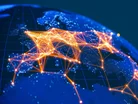Reshore: manufacturers come home to strengthen supply chain

Offshoring is a business term for when a company sends production to another country, where the workers can be paid for less than those in the company’s own country and where the laws are often less strict on health and safety regulations.
In 1978, China’s economy opened up to the rest of the world and the country later joined the World Trade Organisation in 2001. The resulting shifts made China the manufacturing powerhouse of the world, making everything cheaper than factories from the West.
Reshoring is the opposite of offshoring, when a business brings its manufacturing back from factories abroad.
In the pre-COVID-19 era of successful globalisation, Western companies offshoring to Asian factories was very popular. Although the manufacturers who lost their factory jobs due to offshoring lost out, society was pleased with the availability of cheap products.
However, the lockdowns due to COVID-19 changed this sentiment and as a result, some manufacturers are bringing production back home.
Japan reshored the manufacturing industry
The late Japanese Prime Minister Shinzo Abe was the longest-serving prime minister in Japan’s democratic history. While he successfully improved international relations around the world, Abe also encouraged the recall of Japanese manufacturing from China.
Abe created a US$2bn assistance package to help Japanese manufacturers move their production back to Japan - to shorten the supply chain and create employment opportunities. This reshoring proved popular in Japan and is something Abe will be remembered for, but it soured relations with China.
Apple reshoring and expanding across Asia
In 1998, Tim Cook joined Apple as Senior Vice-President for worldwide operations. After Apple co-founder Steve Jobs stood down, Cook became CEO of the world’s leading technology company.
Cook has said he wants to build stronger relationships with American manufacturers, with the Advanced Manufacturing Fund set up in 2017 to prove this is more than PR. The US$1bn fund supports millions of manufacturing jobs in the USA. Apple has also invested US$45m into a Kentucky factory which makes the glass used in iPhones.
In addition, Apple is shifting its manufacturing to China’s neighbours Vietnam and India, where Apple manufactures iPads.
UK manufacturing: from the Industrial Revolution to modern day reshoring
Britain was the birthplace of the Industrial Revolution, where mechanised manufacturing sped up production.
Yet from the 1970s, the manufacturing industry started to shrink, partly due to offshoring. The UK remains the ninth biggest manufacturing nation, with an annual output of £183bn.
Industry group Make UK conducted a survey with 132 British companies and asked them questions about their supply chains. Over two-fifths said that they had deepened their British supply base, with half of those businesses describing it as a "significant re-routing" in order to keep up with the needs and expectations of the customer.
- Aggreko: UK Energy Manufacturers must Shore Up Supply ChainSustainability & ESG
- Capgemini: Gen AI Cause of Spiking Semiconductor DemandAI & Automation
- KION & Accenture: Warehouse Optimisation through NVIDIA AIAI & Automation
- Manufacturing Unwrapped: Digital Product Passport ImpactsProduction & Operations

